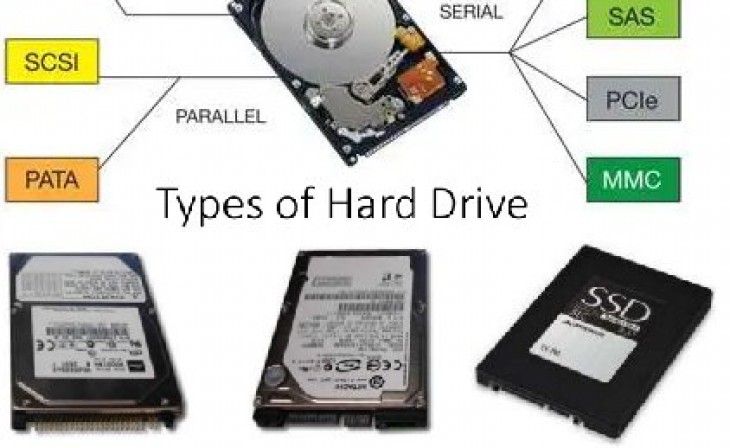Types of hard disk
Hard Disk Drive (HDD)
The Hard Disk Drive (HDD) is the most common and widely used type of hard disk. It consists of one or more spinning magnetic disks, called platters, which store data. The data is read and written using magnetic heads mounted on an actuator arm. HDDs are known for their large storage capacity, affordability, and reliability. They are available in different form factors, including 3.5-inch drives for desktop computers and 2.5-inch drives for laptops.
Solid-State Drive (SSD)
Solid-State Drives (SSDs) have gained popularity in recent years due to their superior performance and reliability. Unlike HDDs, SSDs do not have moving parts. Instead, they use flash memory technology to store data. SSDs offer significantly faster data transfer speeds, lower power consumption, and quieter operation compared to HDDs. They are available in various form factors, including standard 2.5-inch drives, M.2 drives, and PCIe-based drives. SSDs are particularly beneficial for tasks that require fast data access, such as operating systems, applications, and high-performance computing.
Hybrid Drives
Hybrid drives, also known as SSHDs (Solid-State Hybrid Drives), combine the best features of HDDs and SSDs. They feature a traditional HDD with a smaller amount of solid-state storage. The SSD portion serves as a cache for frequently accessed data, providing faster read and write speeds compared to a standard HDD. Hybrid drives offer a balance between storage capacity and performance, making them a cost-effective option for users who require both ample storage space and improved speed.
External Hard Drives
External hard drives are portable storage devices that can be connected to a computer via USB or other interfaces. They come in different form factors, including compact 2.5-inch drives and larger 3.5-inch drives. External hard drives offer the convenience of additional storage capacity that can be easily connected and disconnected from different devices. They are commonly used for backup purposes, data transfer, and expanding the storage capacity of computers, laptops, and gaming consoles.
Network Attached Storage (NAS) Drives
Network Attached Storage (NAS) drives are designed for shared storage and remote access over a network. They are essentially specialized hard drives or storage enclosures that connect to a local network and provide storage space accessible to multiple devices. NAS drives offer features such as data redundancy, RAID configurations, and remote file access. They are commonly used in home networks, small offices, and business environments that require centralized and reliable storage solutions.
Enterprise Hard Drives
Enterprise hard drives are specifically designed for high-performance and demanding data center environments. They offer features like high capacity, fast data transfer rates, enhanced reliability, and advanced error correction mechanisms. Enterprise hard drives are built to handle constant read and write operations, making them suitable for applications such as cloud storage, big data analytics, and enterprise-level databases.
Shingled Magnetic Recording (SMR) Drives
Shingled Magnetic Recording (SMR) drives are a type of hard disk that utilizes overlapping magnetic tracks to increase storage density. SMR drives offer higher storage capacity compared to conventional HDDs by overlapping tracks like shingles on a roof. However, SMR drives may experience slower write speeds due to the nature of the recording method. They are commonly used in applications where high-capacity storage is required, such as archival storage or cold data storage.
Also Check Best Graphics Cards for Video Editing
Conclusion
The evolution of hard disks has led to a wide range of options suited for different needs. From the traditional HDDs to the lightning-fast SSDs, and from portable external drives to enterprise-level storage solutions, there is a hard disk type available to fulfill the diverse storage requirements of users.
When choosing a hard disk, consider factors such as storage capacity, performance, reliability, and intended usage. Assess your specific needs and budget to determine which type of hard disk best suits your requirements.




